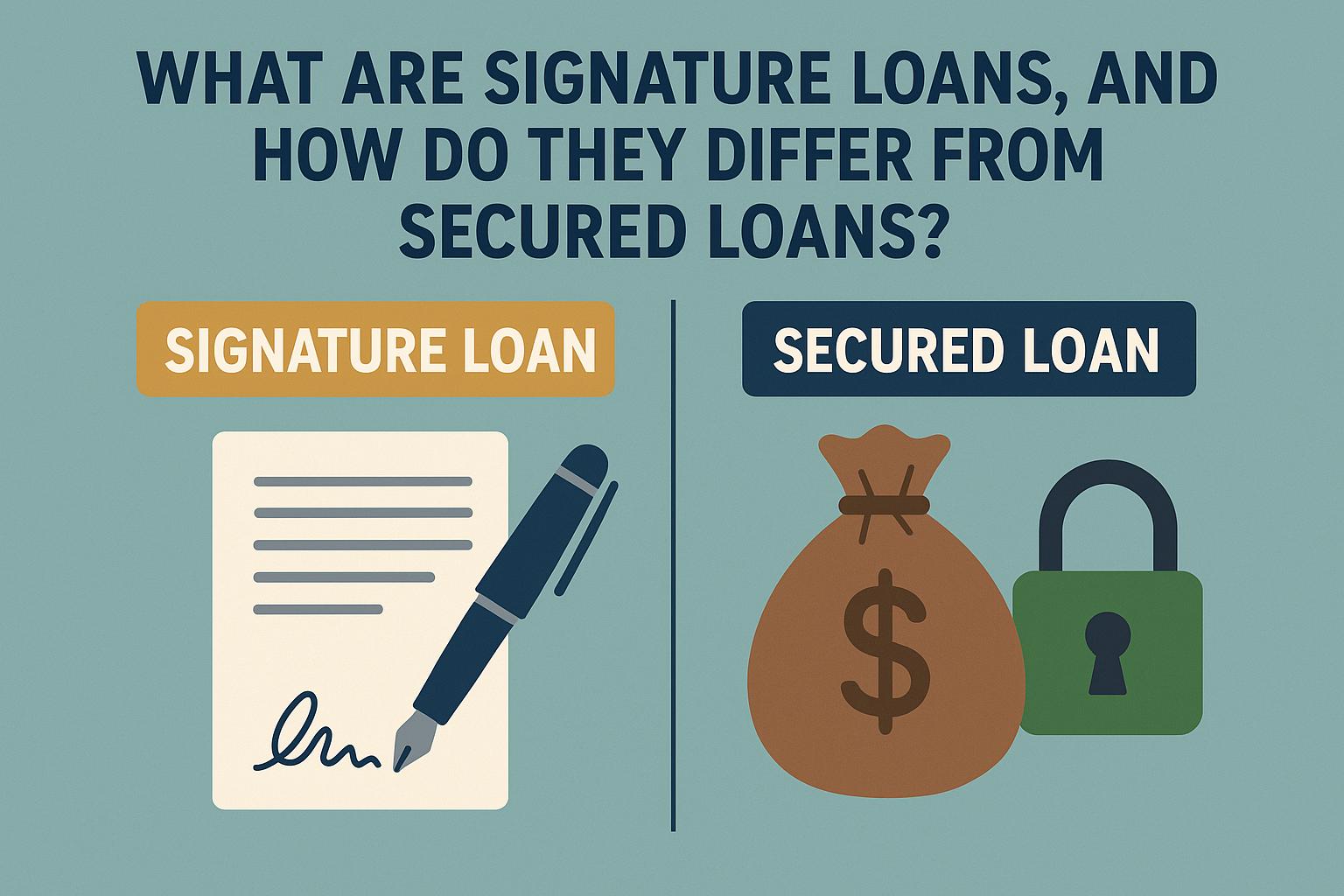
What are signature loans, and how do they differ from secured loans?
Understanding Signature Loans
Signature loans, alternatively known as unsecured personal loans, represent a financial product predominantly grounded on the borrower’s creditworthiness. These distinct types of loans diverge from secured loans in their fundamental structure as they do not necessitate any physical asset as collateral. Instead, the borrower’s signature on the loan agreement constitutes a pledge to repay the borrowed funds. This key feature provides both convenience and accessibility to a wide demographic of borrowers, irrespective of their possession of tangible assets.
Characteristics of Signature Loans
Signature loans exhibit several characteristics that distinguish them from other borrowing options. One of the notable features is the streamlined processing involved. Without the requisite evaluation of collateral, the process is generally more direct compared to secured loans. However, the absence of collateral introduces a higher degree of risk for lenders, often resulting in elevated interest rates. Factors such as the borrower’s credit score and income level play a crucial role in determining the loan amount, applicable interest rates, and the terms of repayment.
Secured Loans: A Comparison
To fully appreciate signature loans, it is essential to understand how they contrast with secured loans. Secured loans require the borrower to pledge an asset, such as a home or a car, as collateral. This security acts as a safeguard for lenders and mitigates their risk. In instances where the borrower defaults, lenders have the right to seize the collateral. Consequently, secured loans are perceived to be less risky and usually have lower interest rates, incentivizing individuals with valuable assets to use them as security.
Interest Rates and Amounts
The divergence in risks between signature and secured loans significantly influences their interest rates. Signature loans generally feature higher interest rates due to the lack of collateral, which heightens the lender’s risk exposure. Conversely, the presence of collateral typically enables secured loans to have more competitive interest rates, making them an appealing choice for asset-rich borrowers looking for cost-effective loan options.
Approval Process
The approval process of signature loans is another aspect where these loans differ from their secured counterparts. The lack of a need to assess collateral expedites the approval procedure, often resulting in a quicker turnaround. Nonetheless, lenders give considerable weight to the applicant’s credit score and income stability to mitigate potential risks. On the other hand, the approval process for secured loans involves a meticulous evaluation of the collateral, which may prolong the time taken for the loan to be approved.
When to Consider a Signature Loan?
There are several scenarios where signature loans prove to be advantageous. They present a valuable resource when funds are needed promptly, especially for individuals lacking valuables they are willing or able to leverage as collateral. Signature loans are particularly well-suited for purposes like debt consolidation, covering medical expenses, or funding home improvements. Nonetheless, borrowers should remain vigilant about the typically higher interest rates, ensuring adherence to repayment terms to avoid financial strain.
Debt Consolidation
For borrowers entangled in multiple high-interest debt obligations, signature loans offer a mechanism to consolidate these debts into a single, more manageable loan with a potentially lower interest rate than existing debts. This strategy can simplify financial management and reduce the stress of handling various due dates and repayment amounts.
Medical Expenses
Signature loans can also serve as a lifeline in cases of unforeseen medical expenses. Medical emergencies often require immediate access to funds, and the quick processing of these loans can provide necessary financial relief in critical times.
Home Improvements
Another practical application of signature loans is in facilitating home improvements. Whether it’s a minor renovation or a significant upgrade, getting an unsecured loan eliminates the need to put your property on the line, providing peace of mind while you enhance your living space.
Conclusion
In conclusion, signature loans present a viable, brisk option for accessing funds without collateral requirements, embodying flexibility and efficiency. Nonetheless, borrowers must heed the corresponding higher interest rates. The discernment between signature loans and their secured alternatives empowers potential borrowers to navigate their financial obligations with informed discernment. Those contemplating securing a signature loan are encouraged to investigate varied offerings and terms provided by different financial institutions or refer to government resources for further insights.
